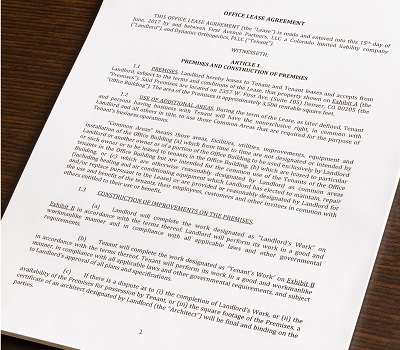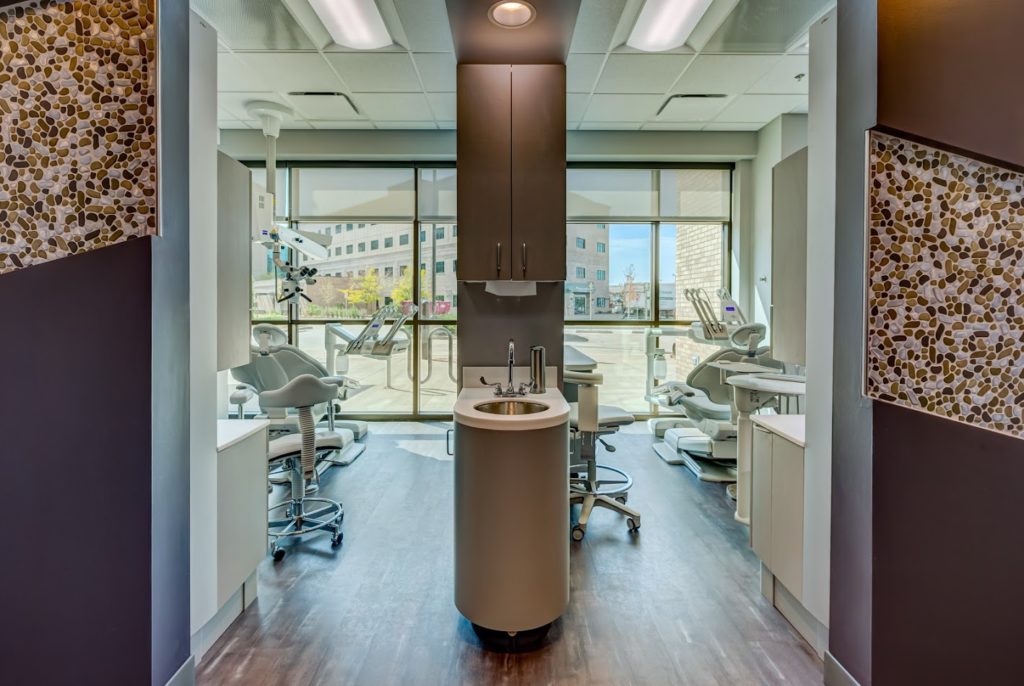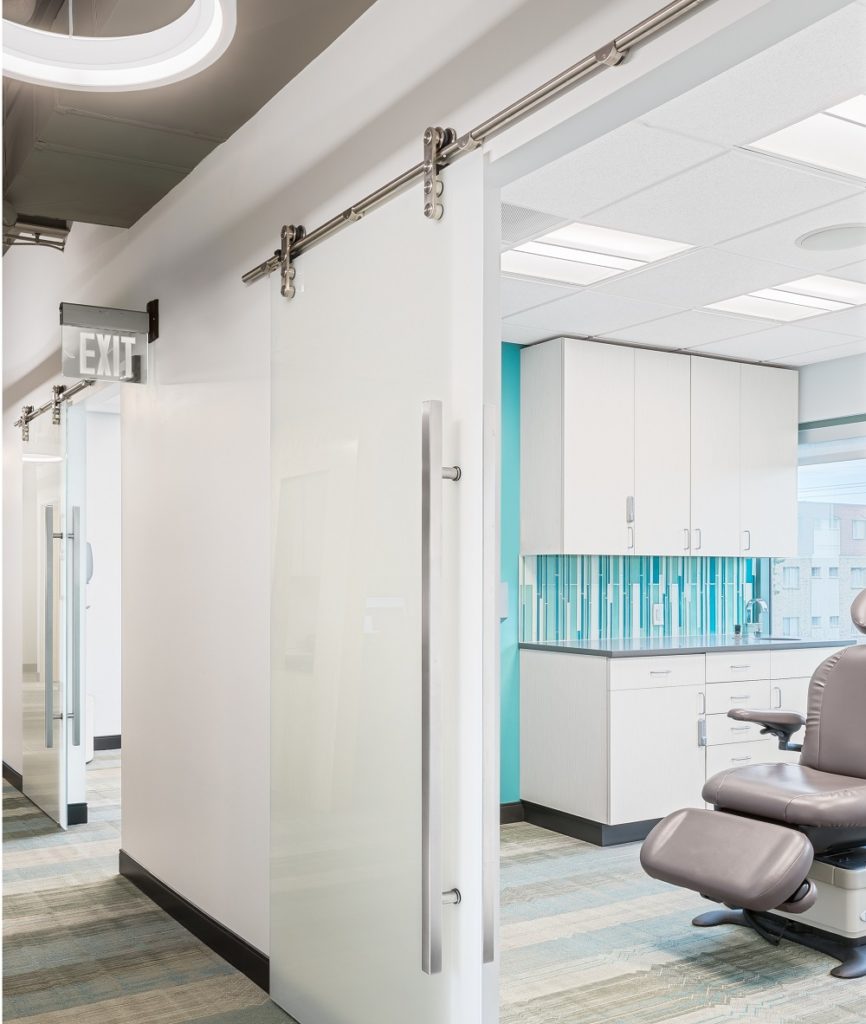Leasing a dental office space is one of the most crucial financial initiatives a dentist will engage in for a number of key reasons. The dental office lease is typically the second highest fixed expense in a dental practice (next to payroll) and it represents a negotiable contract that impacts both the ability to maximize profits, via lease terms, as well as the ability to position a practice for long-term success.
There is much more to leasing a dental space than simply finding a great location and negotiating terms. And while identifying a location is important, there are many nuances to evaluating an office space within a market.
When it comes to lease negotiations, it is paramount that favorable economic terms are achieved. Since there is no standard or templated approach to negotiating a lease, each project is significantly different as the needs and opportunities for both the dentist and the landlord vary greatly with each property option. You must ensure you are considering the full cost of the deal, and not just comparing rental amounts. Sometimes a higher lease rate is actually cheaper in the long run when considering the deal as a whole.
It can be tempting to take the do-it-yourself approach when leasing dental space. To achieve the best possible terms though, it’s best to hire a firm that is an expert in the dental real estate market, has a proven track record negotiating dental leases and is connected to a team of advisors who are committed to your dental practice’s success. It is vital that you have a dental real estate advisor on your side to help you make confident decisions about your practice’s real estate.
Hiring a real estate agent that’s a dental specialist will also help protect you from numerous common pitfalls by employing their proven strategies and improving the process of finding and negotiating space. A dental specific agent can also introduce you to industry experts who can help you with everything from insuring yourself and your practice to confirming your practice is receiving the most up to date tax savings available. Most importantly, a dental agent will save you dozens of hours so you can use those hours to improve your business.
Dental Letter of Intent
Once you’ve toured the market and identified you’re top 3-4 property options, it’s then time to negotiate. This is done by submitting a non-binding Request for Proposal (otherwise known as an RFP) to the Landlord of your top properties. The RFP contains a list of financial and business deal points that you request if you are to occupy the space.
The landlord will then reply with an LOI, which is a non-binding document that stands for Letter of Intent. In the LOI, the landlord will counter any points that are not acceptable and, along with the lease rate, will present an offer based upon the terms requested. The reason for the RFP approach is to ensure you are getting things that are imperative for your dental office which are otherwise uncommon for a “standard use.”
Not only is it acceptable to negotiate on multiple properties, but it’s in the best interest of you as a Tenant. Submitting multiple offers creates competition between Landlords, ensuring you understand what other properties would be willing to offer you for your tenancy. It also gives you confidence in knowing that you will not need to start the entire process over if one property does not work out (which does happen in commercial real estate, in both up and down markets). Finally, this approach also allows the practice owner to rest assured knowing that the best options in the market were equally evaluated before committing to a location and terms.
A Letter of Intent serves as a high-level agreement between the Landlord and the Tenant prior to preparing a lease draft which will ultimately become a binding contract. Taking this approach saves both parties time and money by not getting to the legal negotiations too quickly, thus saving billable hours for what an attorney would otherwise have charged in a situation where the parties are too far off on the main business points to proceed any further.
The most common business points include but are not limited to: the name of the Tenant and their intended use of the space, lease type, lease term, lease and rent commencement dates, base lease rate, common area operating expenses, exclusivity, free rent periods, annual escalations, tenant improvement allowance, signage, HVAC and electrical needs, renewal options and condition of the premises (also commonly referred to as the landlord’s work).
Your dental agent should gather all of the LOI’s and put them into a comparison spreadsheet which takes into consideration not only the unique terms offered by each landlord, but also the remaining costs of the deal for the practice, including the cost to build out the space, cost of funds to pay for improvements, along with other important considerations. In doing so, you will obtain a clear picture for which deal makes the most sense overall. Often times there are multiple rounds of negotiations to ensure that there is nothing left on the table.
Once all Letters of Intent are evaluated, and best and final terms are agreed to, your agent will provide a comparison of the final offers, and then you will decide which is the prevailing property. At that point, the Landlord will supply a lease draft for legal review by your real estate attorney.
Dental Lease Agreements
Upon receiving a dental office lease agreement from the Landlord, it’s time to engage a real estate attorney to perform a lease review. Your attorney should begin with the LOI to ensure that not only did the business points make it into the lease, but that they are communicated in a way that makes them binding on both parties. Your attorney will also then review the remainder of the lease, which often includes such points as:
- Assignability and permitted transfers
- Force majeure and/or pandemic clauses
- Maintenance responsibilities of both parties, including HVAC
- Subleasing restrictions (i.e. to a specialist)
- Personal Guaranty burn-offs
- Death and disability
- Relocation (within the property)
- Access to the property after normal business hours
- Common area maintenance
- Landlord’s work and delivery of the premises
- Liability insurance requirements
- Other matters pertinent to a dental office
Dental lease agreements vary in length from ten pages to fifty pages or more. The depth of the lease is largely dependent upon the type of Landlord that owns the property (e.g. and institutional landlord vs. a mom and pop owner) along with the size of the property or master-planned development. In every case, no matter how short and seemingly simple the lease is, only licensed attorneys are permitted to give a client legal advice.
Your real estate agent should not, and legally cannot, perform a legal review of your lease. It is a breach of both legal and ethical state statutes for a real estate agent to practice law. Practicing law constitutes the giving of legal advice, including but not limited to the evaluation of a legal document (or lease) and then advising a client on potential outcomes or strategies to proceed. Bottom line, real estate licensees are not permitted to practice law.
Conclusion
Following these strategies will ensure that you get the best possible outcome and maximize your profits when leasing dental office space:
- Understand that there are pitfalls to calling on properties without representation and avoid the temptation to do it yourself.
- Hire an expert dental real estate broker that only represents tenants and buyers, and therefore has no conflict of interest otherwise created by agents that also work with Landlords.
- Look at all of your viable options including the possibilities of leasing or owning. Look at retail, office and stand-alone buildings. Cover all your ground and compare your top three to five options before making a decision.
- Assemble an expert team of dental advisors and vendors to help you complete your office project. Your team may include an Attorney, CPA, Architect, Contractor, Engineers, IT Professional, Designer, Practice Consultant, Equipment Supplier, Financial Planner, and more. Your specialized dental real estate agent can help you secure your entire team, and ensure you have the most qualified and efficient professionals working on your behalf.
FREE EVALUATION Find An Agent












